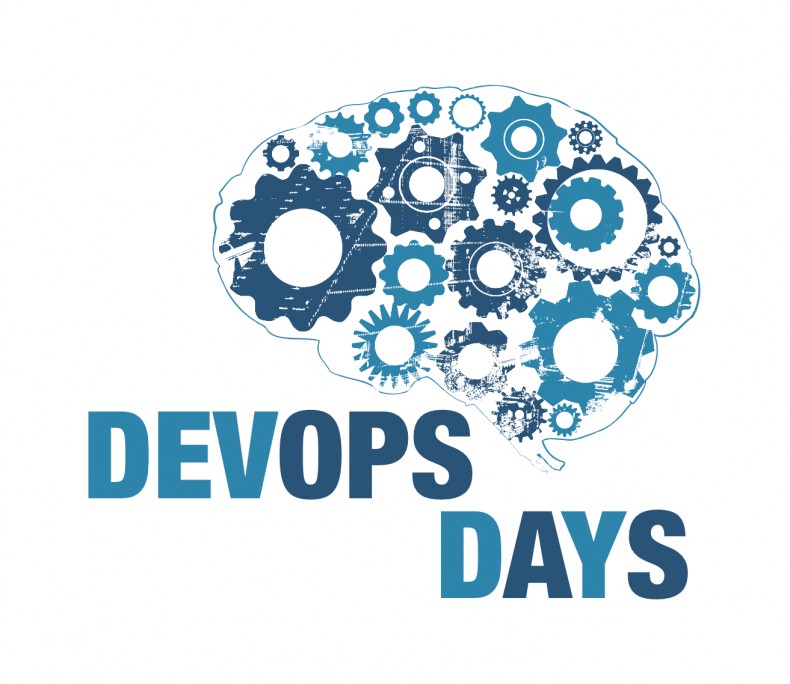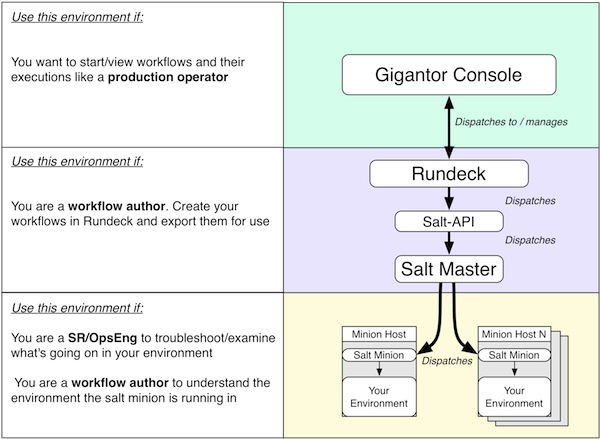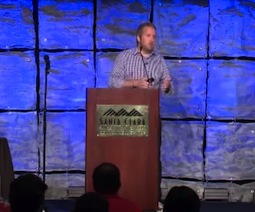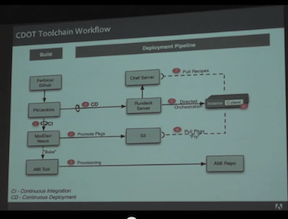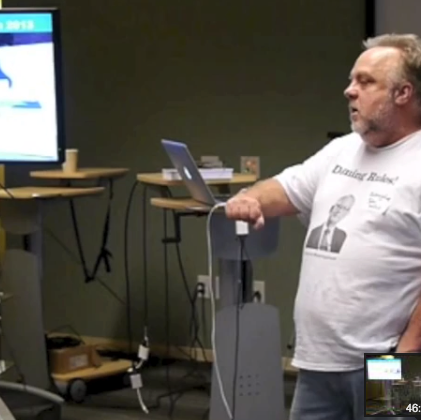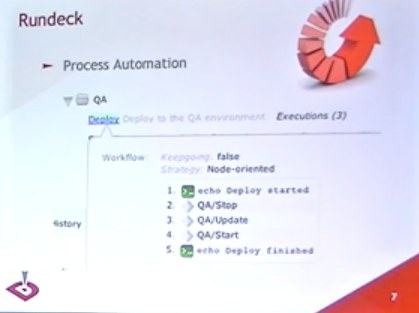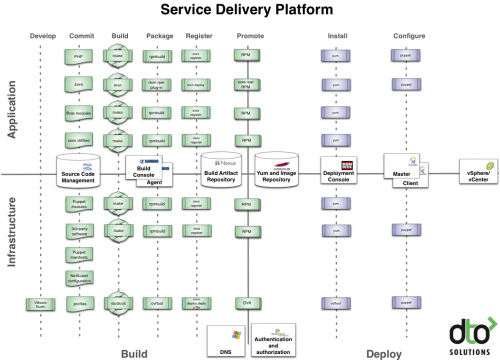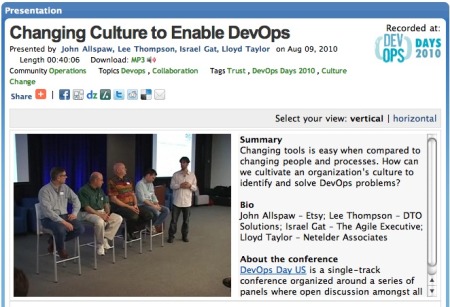Nick Carr’s “The Big Switch” – Review of Part 1
Damon Edwards /
I just finished reading Part 1 of Nick Carr’s new book, The Big Switch. Let me just say that I’m both excited and disappointed thus far.
First, the excited part…
In my opinion, Nick Carr is a great writer. His way of explaining the future by retelling the past from an enlightened point of view reminds me a lot of George Gilder’s seminal Telecosm essays. Both make for a fascinating read. Part 1 is really a retelling of how electrical power generation went from being a custom piece of local infrastructure to a commodity delivered almost exclusively through a variable-rate utility grid. Through some very accessible storytelling, Nick makes an obvious case for how the same economic factors that drove “the big switch” for the electrical power industry are about to hit the IT industry. If you know someone who can’t clearly see the SaaS/cloud/outsourcing writing on the wall… give them this book. The economic argument is highly compelling.
Now for the disappointed part…
The vast majority of this first part is about the electrical power industry. While it makes for a compelling argument for a certain economic model, it doesn’t really say what the impact is going to be or what the response should be other than the fact that 1. most hardware vendors and on premises software vendors are toast 2. everyone better quickly figure out how to plug into the new grid. I thought that Part 2 was going to cover this… but nope. I skimmed through Part 2 and it looks like it is all about what the impact of the new grid will be on our personal lives, government, etc. It feels like I’m watching a compelling PBS miniseries and I missed an episode. Perhaps this book should have been called “Warning: a big switch is coming”.
The other disappointing part is how he glosses over over the fact that while computer cycles are a commodity, computing services are not. Electricity is electricity but not all computing needs are the same. You can’t just pick AC or DC and a voltage and tell everyone to fall in line. Nick jumps a little too easily between things like Google Search, Amazon Web Services, and Salesforce.com. Those are all very different things and, aside from the need for power, computing cycles, and bandwidth, they all have very different technical requirements. While power, computing cycles, and bandwidth are commodities that can be grid delivered just like electricity, the various levels of computing services that can be delivered on top of them are not. As I’ve said before, manufacturing is a much better model to study for how those services are going to play out.
But all in all, this has been a fun read thus far. For the uninitiated masses who don’t really know what we do in the IT trenches all day long, this book should be a startling wake up call for how fast the world is going to change.
I’m fired up to read Part 2 as soon as I get a chance. I’ll be sure to post my $0.02 when I’m done.
